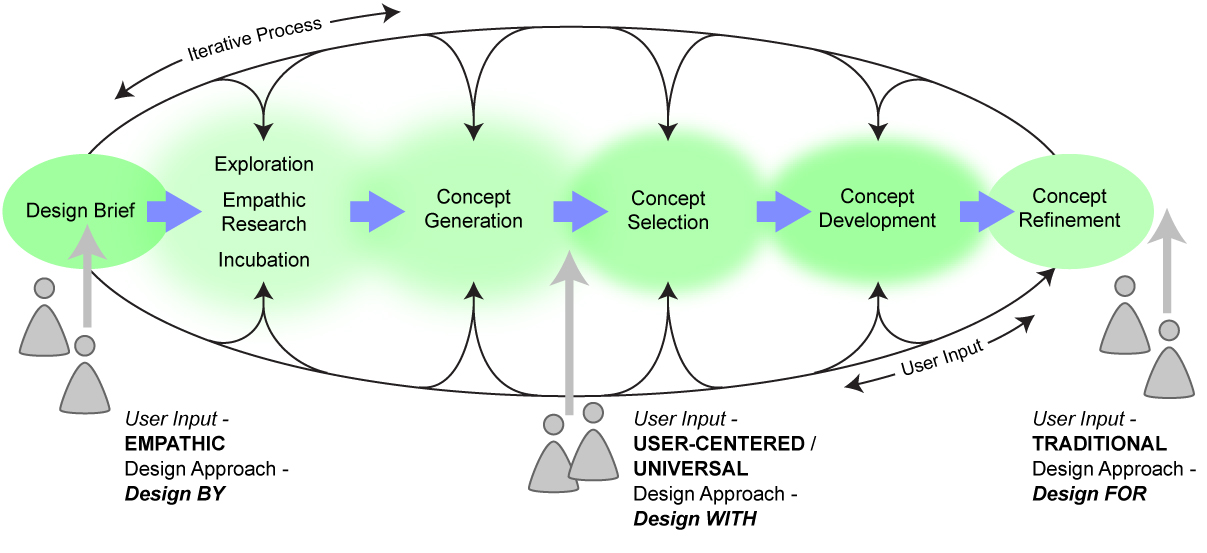Deana C. McDonagh
 The Role of Empathic Design in Integrating People with Disabilities into Industrial Design
The Role of Empathic Design in Integrating People with Disabilities into Industrial Design
To succeed in their everyday lives, people with physical disabilities rely on a wide range of assistive technology products. Professor McDonagh’s research program draws on the resources of the Industrial Design curriculum, programs and services of the Division of Disability Resources and Educational Services (DRES), and, most importantly, the creativity and innovative adaptations of students who live with disabilities. Her overall goal is the design of better mainstream products that respond to different needs, expectations, and experiences; her approach is through empathic design research.
Empathic design research entails sustained immersion in the everyday contexts of potential product users. While time-intensive, this approach provides invaluable data that ultimately can result in more appropriate products for the wider community. During the fall of 2009 Professor McDonagh will immerse herself in the experiences of twenty new students, registered through DRES, as they begin to navigate the campus environment. She will gather data using existing research techniques (e.g., photographic ethnography, one-to-one interviews, focus groups) and also develop techniques such as emotional mood boards and empathic modeling.
Professor McDonagh expects that this research approach will allow her to probe deeper questions relating to product design and individuals’ relationships with the products that they surround themselves with. For example, what kinds of psychological barriers can exist between users and their assistive technology products that lead to a product’s being abandoned? She is also planning to use the data to inform concept ideas for how able-bodied students in the Industrial Design curriculum can incorporate these insights into improved product designs, perhaps through a co-creation process that closes the current gap between those who design the products and those who actually use them.
By disseminating her results through presentations and publications, Professor McDonagh will (a) provide important data for the University on the experiences of students with disabilities, (b) support the development of industrial design research methods that are appropriate to working with people with disabilities, and (c) elucidate an improved design process that will benefit people who rely on assistive technology products.
